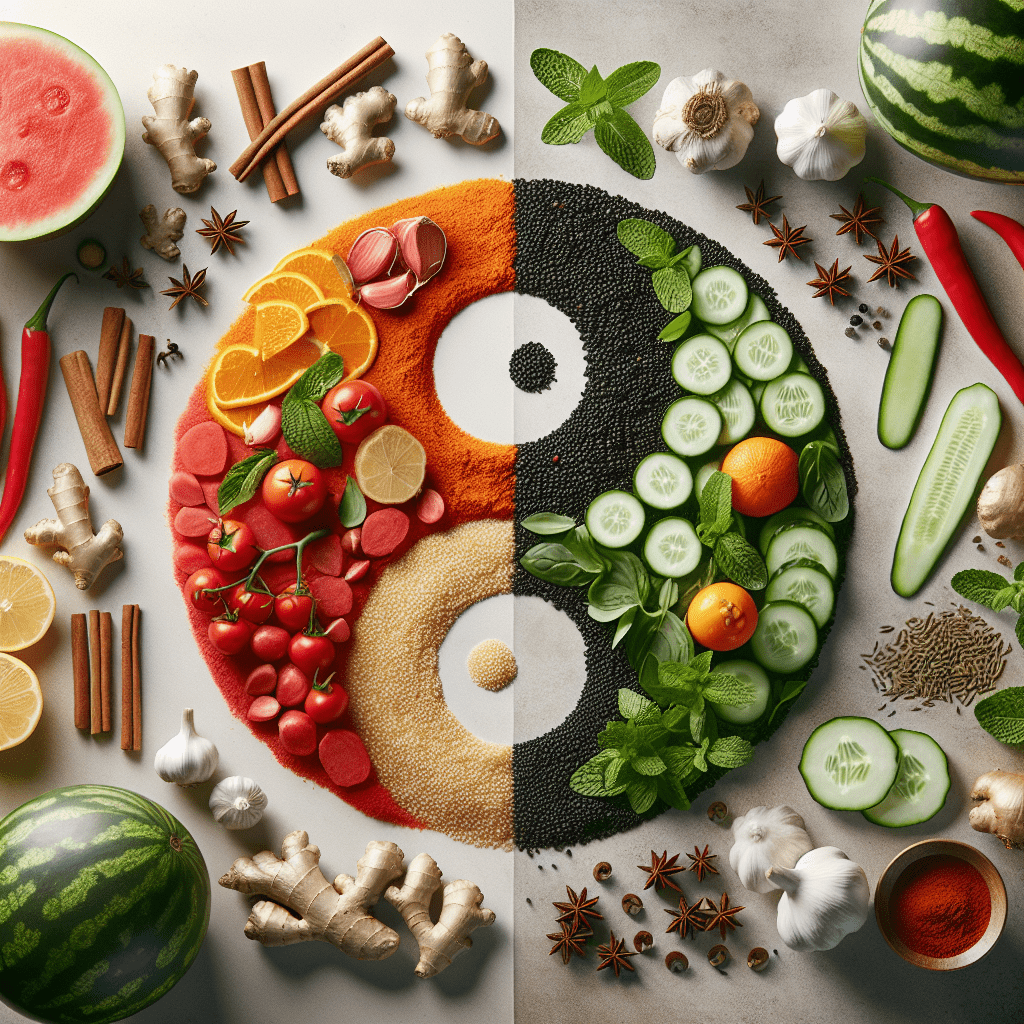
When it comes to taking care of our health, most of us know the basics—eat your veggies, exercise regularly, get enough sleep. But what if there was an entire system of nutritional knowledge, refined over thousands of years, that looks at food through a completely different lens? That’s exactly what nutrition based on Eastern medicine offers us today.
Eastern medicine views nutrition not just as fuel for our bodies but as a profound way to balance our entire being—body, mind, and spirit. Unlike the Western approach that often focuses on calories, macronutrients, and isolated vitamins, Eastern dietary wisdom considers the energetic properties of food and how they interact with our individual constitution. This holistic perspective is gaining traction as more people seek natural, comprehensive approaches to wellness that address the root causes of health issues rather than just symptoms.
In today’s wellness landscape, where “whole person health” is becoming increasingly valued, the principles of nutrition based on Eastern medicine feel surprisingly modern and relevant. Many health-conscious individuals are discovering that these ancient practices align perfectly with their desire to achieve balance and harmony in their lives—not just physical health, but emotional and spiritual wellbeing too.
“Let food be thy medicine and medicine be thy food.” While often attributed to Hippocrates in Western tradition, this principle has been central to Traditional Chinese Medicine (TCM) for over two millennia. In Eastern medical systems, the line between food and medicine is beautifully blurred.
In TCM, foods are classified much like herbs in a pharmacy—each with specific properties and therapeutic effects. Some foods are warming, others cooling; some build energy, others cleanse the body. Rice, honey, and certain meats like lamb are considered tonifying and help sustain energy levels, making them excellent choices for those experiencing fatigue or weakness.
This approach is fundamentally different from simply counting nutrients. A TCM practitioner might recommend specific foods based on your health condition—ginger for poor circulation, tofu for excessive body heat, or sweet potatoes to support digestive function. The goal isn’t just to meet nutritional requirements but to restore harmony and prevent disease before it begins.
As one TCM nutritionist explains, “When we understand food as medicine, mealtime becomes an opportunity for healing. A balanced diet isn’t just about getting enough vitamins—it’s about choosing foods that specifically address your body’s current needs and imbalances.”
Research increasingly supports this preventive approach. In a Singapore Chinese health study, diets rich in vegetables, fruits, and soy—staples in traditional Eastern diets—were shown to reduce diabetes risk by 25%, while meat-heavy diets increased risk factors.
At the philosophical core of nutrition based on Eastern medicine is the concept of Yin and Yang—complementary opposites that must remain in balance for optimal health. This ancient principle translates directly to how we should approach our diet.
Yin foods have cooling, calming properties. They include cucumbers, watermelon, leafy greens, and tofu. These foods help cool an overheated system and are especially beneficial during summer months or for people with “hot” conditions like inflammation or skin eruptions.
Yang foods, by contrast, are warming and energizing—think ginger, garlic, chili peppers, and most animal proteins. These foods stoke our internal fire, supporting circulation and warming the body from within, making them ideal for winter consumption or for individuals with cold constitutions.
The beauty of this system lies in its flexibility. There’s no single “perfect diet” for everyone—instead, the ideal balance shifts based on your constitution, the season, your current health status, and even your emotional state. Someone who runs cold might need more warming foods, while a person who easily overheats might benefit from a more cooling diet.
Applying these principles can be surprisingly intuitive. Feeling sluggish and cold? A warming ginger tea might be just what you need. Feeling irritable and overheated? Perhaps a cooling cucumber salad could help restore balance. This dynamic approach recognizes that our needs are constantly changing—a refreshing contrast to rigid dietary rules.
Another cornerstone of nutrition based on Eastern medicine is the Five Elements Theory. According to this system, all things in nature—including foods and our bodily organs—correspond to five elements: Wood, Fire, Earth, Metal, and Water.
Each element connects to specific organs, emotions, and foods:
- Wood relates to the liver and gallbladder and is nourished by sour foods like vinegar and citrus
- Fire connects to the heart and small intestine and is supported by bitter foods like dark leafy greens
- Earth governs the stomach and spleen and is strengthened by sweet foods like rice and sweet potatoes
- Metal corresponds to the lungs and large intestine and benefits from pungent foods like onions and ginger
- Water is linked to the kidneys and bladder and is nourished by salty foods like seaweed
Following the Five Elements Theory means eating a variety of foods that support each element, creating a naturally balanced diet. This approach ensures we’re nourishing all our bodily systems, not just focusing on isolated nutrients.
For example, someone with liver imbalances might incorporate more sour foods to support Wood energy, while a person with digestive issues might focus on Earth-supporting foods. This creates an elegant system of personalized nutrition that addresses specific health concerns while maintaining overall balance.
One of the most practical and environmentally friendly aspects of nutrition based on Eastern medicine is its emphasis on seasonal eating. Eastern wisdom teaches that our bodies’ needs change throughout the year, and nature provides exactly what we need in each season.
In spring, when the Wood element dominates, light, cleansing foods like leafy greens help support the liver’s natural detoxification processes. Summer calls for cooling yin foods like watermelon and cucumber to balance the Fire element. Autumn, associated with Metal, is ideal for pungent foods that support lung health as we prepare for winter. And winter, governed by the Water element, calls for warming, nourishing foods that preserve kidney energy.
This approach not only aligns our diet with our body’s changing needs but also ensures we’re consuming foods at their nutritional peak. Modern research confirms that fruits and vegetables harvested in season contain higher levels of nutrients and beneficial compounds.
A simple way to practice seasonal eating is to visit local farmers’ markets and choose what’s abundant. Your body often naturally craves what it needs most during each season—cool, hydrating foods in summer and hearty, warming dishes in winter.
Perhaps the most revolutionary aspect of nutrition based on Eastern medicine is its deeply personalized approach. Unlike standardized dietary guidelines that recommend the same eating patterns for everyone, Eastern nutrition recognizes that each person has unique needs based on their constitutional type.
A TCM practitioner might assess your pulse, tongue, and overall energy to determine if you have excesses or deficiencies that need addressing through diet. Someone with a “damp” constitution might be advised to avoid dairy and heavy foods, while a person with “blood deficiency” might be encouraged to consume more iron-rich foods and blood-building herbs.
This individualized approach feels particularly relevant today, as research increasingly shows that people respond differently to the same foods. What causes inflammation in one person might be perfectly healthy for another. Eastern medicine has recognized this principle for thousands of years, developing sophisticated systems for personalizing dietary recommendations.
At HerbalsZen, this personalized approach is at the heart of our philosophy. We believe that understanding your unique constitutional type is the foundation of true wellness, allowing you to make dietary choices that specifically support your health needs.
Bridging Ancient Wisdom and Modern Science
What makes nutrition based on Eastern medicine so powerful in today’s world is the growing scientific validation of its principles. Research is increasingly confirming what Eastern practitioners have known for centuries—that certain foods have specific therapeutic effects on the body.
Studies have shown that many traditional Eastern dietary practices, from fermentation to seasonal eating, offer measurable health benefits. For example, research on the anti-inflammatory properties of turmeric, a staple in Eastern cooking, has exploded in recent years, confirming its traditional uses. Similarly, the benefits of fermented foods like kimchi and miso for gut health are now well-documented by scientific research.
This convergence of ancient wisdom and modern science offers exciting possibilities for integrative approaches to health. Rather than choosing between traditional and conventional nutrition, we can draw from both to create a more comprehensive understanding of food’s healing potential.
As one nutrition researcher notes, “Eastern medical systems observed patterns of cause and effect for centuries, developing sophisticated nutritional theories that modern science is now beginning to understand at the molecular level. Together, these perspectives give us a much more complete picture.”
Healing Through Cooking Methods
Eastern medicine’s nutritional wisdom extends beyond what we eat to how we prepare it. Traditional cooking methods are designed to enhance the digestive quality of foods and preserve their energetic properties.
Gentle cooking methods like steaming and simmering are often preferred over high-heat methods like frying, which can damage nutrients and create harder-to-digest compounds. Slow cooking techniques help break down proteins and fibers, making nutrients more bioavailable and reducing the energy required for digestion.
Fermentation, a cornerstone of Eastern food preparation, enhances the nutritional profile of foods while creating beneficial probiotics that support gut health. Traditional fermented foods like kimchi, miso, and kombucha have become popular in Western wellness circles for precisely these reasons.
Even the order of eating matters in Eastern dietary traditions. Starting meals with a small amount of warming food or drink is believed to kindle digestive fire and prepare the body to process nutrients more efficiently.
These mindful cooking practices encourage a deeper connection with food and transform meal preparation into an act of self-care.
In Eastern medicine, the connection between emotions and digestion is profound. Food isn’t just physical nourishment—it affects our emotional and mental states, and conversely, our emotions impact how we digest and assimilate food.
Traditional Eastern dietary wisdom recognizes that certain foods can calm a stressed mind or lift a depressed spirit. Sweet foods in moderation are said to comfort and ground us, while pungent foods can help clear stagnant emotions. This understanding of food’s emotional dimension adds another layer to the concept of “balanced nutrition.”
Eastern traditions also emphasize mindful eating—being fully present during meals and eating in a calm environment. This practice enhances digestion and absorption while fostering a healthier relationship with food. In today’s fast-paced world where eating is often done hastily or while distracted, this simple practice can transform our experience of nourishment.
The principles of nutrition based on Eastern medicine offer a refreshing alternative to rigid dietary rules and one-size-fits-all recommendations. By understanding food’s energetic properties, honoring seasonal changes, and personalizing our approach based on our unique constitution, we can develop a more intuitive, flexible relationship with eating.
At HerbalsZen, we believe that integrating these ancient principles with modern nutritional understanding creates the most powerful approach to food as medicine. Our EASTCHI AI platform helps individuals discover their constitutional type and receive personalized dietary guidance based on Eastern medical wisdom, making these time-tested principles accessible in today’s busy world.
Whether you’re dealing with specific health issues or simply seeking greater vitality and balance, the wisdom of Eastern nutrition offers valuable insights. By viewing food as medicine and eating in harmony with your body’s needs and the natural world, you can transform your diet from merely sustaining life to actively promoting vibrant health and wellness.
This ancient approach to nutrition isn’t just a historical curiosity—it’s a living tradition that continues to evolve and offer solutions to modern health challenges. As we face increasing rates of chronic disease and environmental concerns about food production, Eastern medicine’s holistic, balanced approach to eating feels more relevant than ever.




